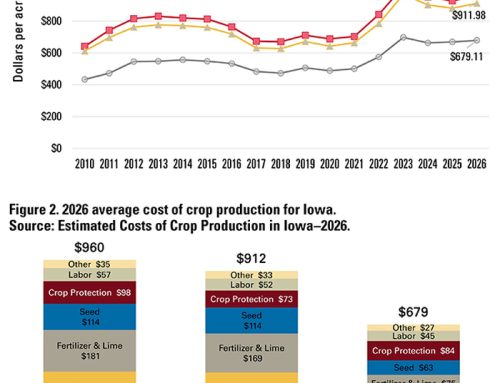By Peggy Kirk Hall and Ryan McMichael, Ohio Country Journal
Drones, or more accurately named Unmanned Aerial Vehicles (UAV), have helped provide new methods of pesticide applications and agronomic data collection to assist farmers with productivity and efficiency. Yet, the possibility of unknown drones flying over a farm property can cause concerns. Recent conversations and sightings of drones in rural areas have producers raising questions, such as “what can I do about suspicious drone activity” and “can I shoot down a drone over my property?”
Federal and state laws provide answers to these questions. Here are several points farmers need to know about dealing with UAV traveling over their properties.
1. Shooting a drone is a crime under Federal and state laws. Federal law prohibits a person from intentionally harming UAV and other aircraft. It is a Federal felony to willfully “damage, destroy, disable, or wreck any aircraft,” and the Federal government has prosecuted persons for doing so.
2. Shooting a drone can create safety risks and potential civil liability. The Federal Aviation Authority (FAA) and other aviation professionals warn against the unintended consequences of injuring an airborne drone.
3. The recommended action is to report suspicious drone activity. If a UAV poses a danger, an observer should report it right away to local law enforcement or the county Emergency Management Agency, who can investigate the situation.
4. Federal laws require registration and tracking technology for drones. A drone owner must register the aircraft with the FAA and provide the owner’s address, e-mail, and telephone information, along with the model and serial number for the UAV.
5. New laws for UAV will soon be effective in Ohio. While the Federal government has sole authority to regulate UAV, states can also enact drone laws as long as they don’t conflict with the Federal regulations.
It can be unnerving and threatening to site an unknown drone flying over one’s property, but shooting at the drone is not a viable solution to the concern. An injured UAV can harm people and property. A shooter could not only be liable for that harm but could also face criminal felony and misdemeanor charges for endangering or harming aircraft, along with hefty fines and imprisonment penalties.
The preferred solution for dealing with drone activity is to report it to local law enforcement or the FAA. Taking action quickly could result in identification of the owner and an explanation of the drone’s activities. If that activity is suspicious or endangering, Federal and state laws can penalize the offender and eliminate the drone activity.
To read the entire article click here.


